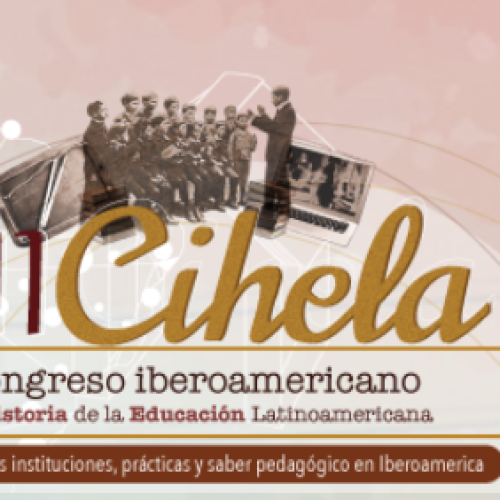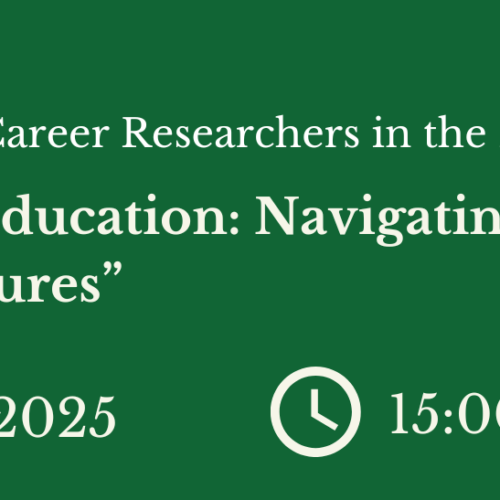CFP: EARLY SCHOLARS CONFERENCE – Transatlantic Histories of Schooling and Education. Deadline: Nov. 30, 2017
EARLY SCHOLARS CONFERENCE
Transatlantic Histories of Schooling and Education – Travelling Knowledge, Concepts, and Materials
WWU Münster, May 24–26, 2018
The exploration of cross-border processes regarding the production, diffusion and reception of pedagogical knowledge, concepts, and materials related to schooling and education has emerged as an integral part of the History of Education. Here, different approaches and concepts are employed that stem from investigations of international and transnational developments and relations and are closely linked to the formation of nation states in the 19th century. Thus, the conference, which will be held from May 24–26, 2018 in Münster, Germany, focuses on two aspects: (1) the spaces of exchange between Germany and the USA, which will be explored by bringing together current research concepts, approaches, and results, (2) the materiality of transnational processes, which will be investigated by focusing on its influ-ence on subjects, objects, and modes of transfer.
First, since the 18th century, the transatlantic history of education has been predominantly influenced by German-American cultural exchange. Here, specific links, interactions, and influences between German and U.S. educators, scholars, schools, universities, scientific communities and academies, government agents and institutions can be observed on both sides of the Atlantic Ocean. Many pedagogical institutions are based on German models and the transnational relationships from which they resulted have sparked further exchange between these two regions – age-grading as a way of forming school classes is a particularly important example. These references were furthered by travel reports as well as the import of publications and materials. Hence, the conference seeks to analyze this paradigmatic and significant relationship by using current transfer research approaches to depict and link its patterns, pro-cesses, results, and scope.
The materiality of pedagogical objects and processes tied to these transatlantic interrelations forms the second focal point of the conference. Starting with German missionaries and ministers operating in colonial America, these transatlantic interactions were initially based on personal exchanges that eventually led to the transfer of pedagogical objects and institutions. In the 19th century, American students and professors travelled to German universities to seek inspiration for the introduction of research universities in the U.S. During this time, the first school-related model transfers took place, i.e. the introduction of compulsory schooling and the elementary school level, among other specific organizational principles. Moreover, textbooks, taxidermically prepared animals, and other educational materials found their way across the Atlantic Ocean. Although initially one-sided, starting in 1945 this dynamic shifted when U.S. re-education programs started to influence the education system of post-war Germany. In the framework of the conference, the object – idea, concept and model – that is transferred plays a significant role, since the conference centers around transfer and reception processes and their results.
Against this backdrop, the conference seeks to closely examine and discuss histories of transatlantic relationships in various education systems. It not only focuses on case studies, but also facilitates a setting where methodological approaches, as well as theoretical concepts and reflections, can be discussed. Here, ongoing research projects will serve as a medium to present and question both established and novel theoretical and methodological concepts and investigate the transferability and feasibility of perspectives offered by other academic disciplines. Thus, this conference welcomes proposals from other disciplines which exhibit different perspectives and offer new methodological impulses to transatlantic histories of education. Apart from the presentation of papers, the conference provides opportunities for individual feedback, discussions and networking – both inside and outside the educational field.
The program committee invites proposals for 20-minute presentations in English or German. Abstracts should not exceed the length of 600 words. Please include a short CV (not more than one page) and submit your proposal (preferably in the form of a single PDF document) by November 30th, 2017 to Andreas Oberdorf (andreas.oberdorf@wwu.de). Travel bursaries are available to international participants. Please bear in mind that funding is limited and depends on the number of applicants.
Organizing Committee:
Fanny Isensee (HU Berlin)
Daniel Töpper (HU Berlin)
Andreas Oberdorf (WWU Münster)
Homepage: http://go.wwu.de/those2018
Information in German available here.
About author
You might also like
Call for Papers: CIHELA 15-18 March 2016 (Medellin, Colombia)
XII Congreso Iberoamericano – Historia de la Educación Latinoamericana, CIHELA, Colombia 2016, Historia de las prácticas, instituciones y saber pedagógico en Iberoamérica. Fecha del evento: 15, 16, 17 y 18
Call for applications: PhD scholarship at Aalborg University. Deadline: Oct. 26, 2016
A three-year fully funded PhD scholarship, under the research project ‘The Rise of an Educationalized World: A Global Analysis of OECD’s Educational Recommendations, Programmes, and Impact’, will be available from
CALL FOR PRE-CONFERENCE WORKSHOPS AT ISCHE 45, Natal, 18 August 2024
As in previous years, ISCHE 45 offers the possibility of organizing a pre-conference workshop (PCW). Such workshops are small focused meetings that will take place on Sunday, 18 August 2024,



